Seasonal and General Immunisations
Flu Vaccinations
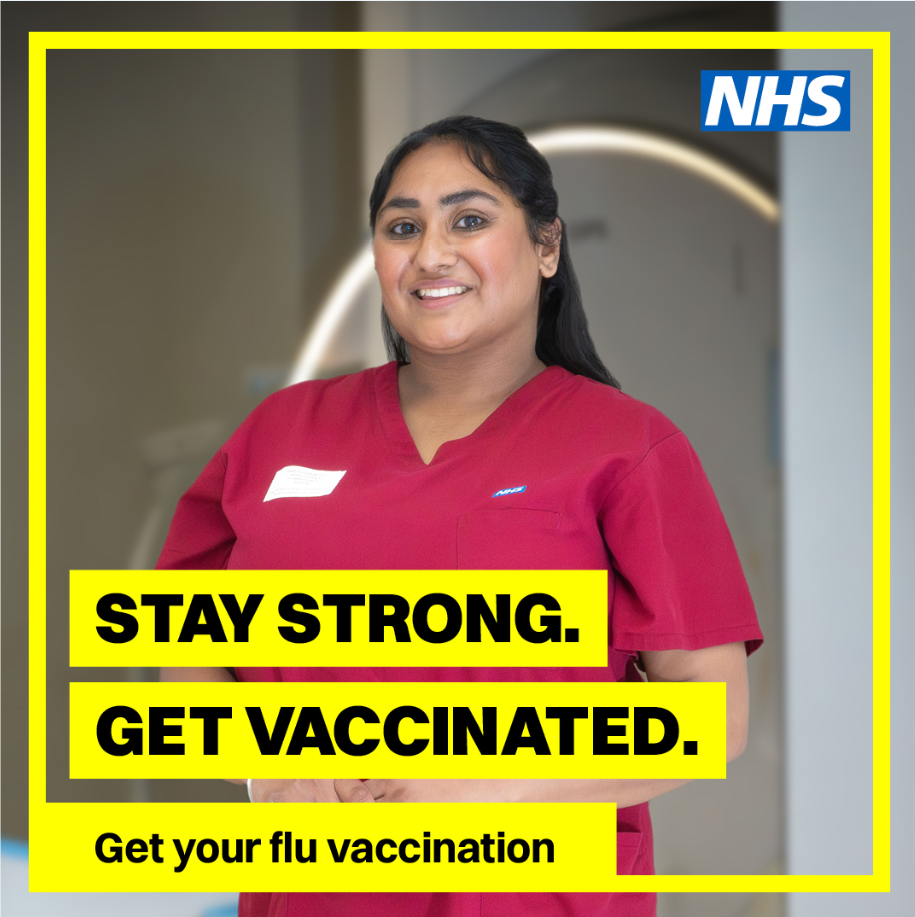
Flu season is coming – protect yourself with a flu vaccination.
This year’s programme runs 1 September 2025 to 31 March 2026.
From 1 September, vaccinations are offered to:
-
Pregnant women
-
Children aged 2–3 on 31 August 2025
-
Children with certain long-term health conditions (6 months to under 18)
-
Primary school children (Reception–Year 6)
-
Secondary school children (Year 7–Year 11)
From 1 October, vaccinations are also offered to:
-
Everyone aged 65 and over
-
Adults (18–64) with certain long-term health conditions
-
Care home residents
-
Carers and household contacts of immunocompromised people
-
Frontline health and social care workers
Watch Ned’s story to learn more about why flu vaccination matters: YouTube link
Influenza & Covid Eligibility
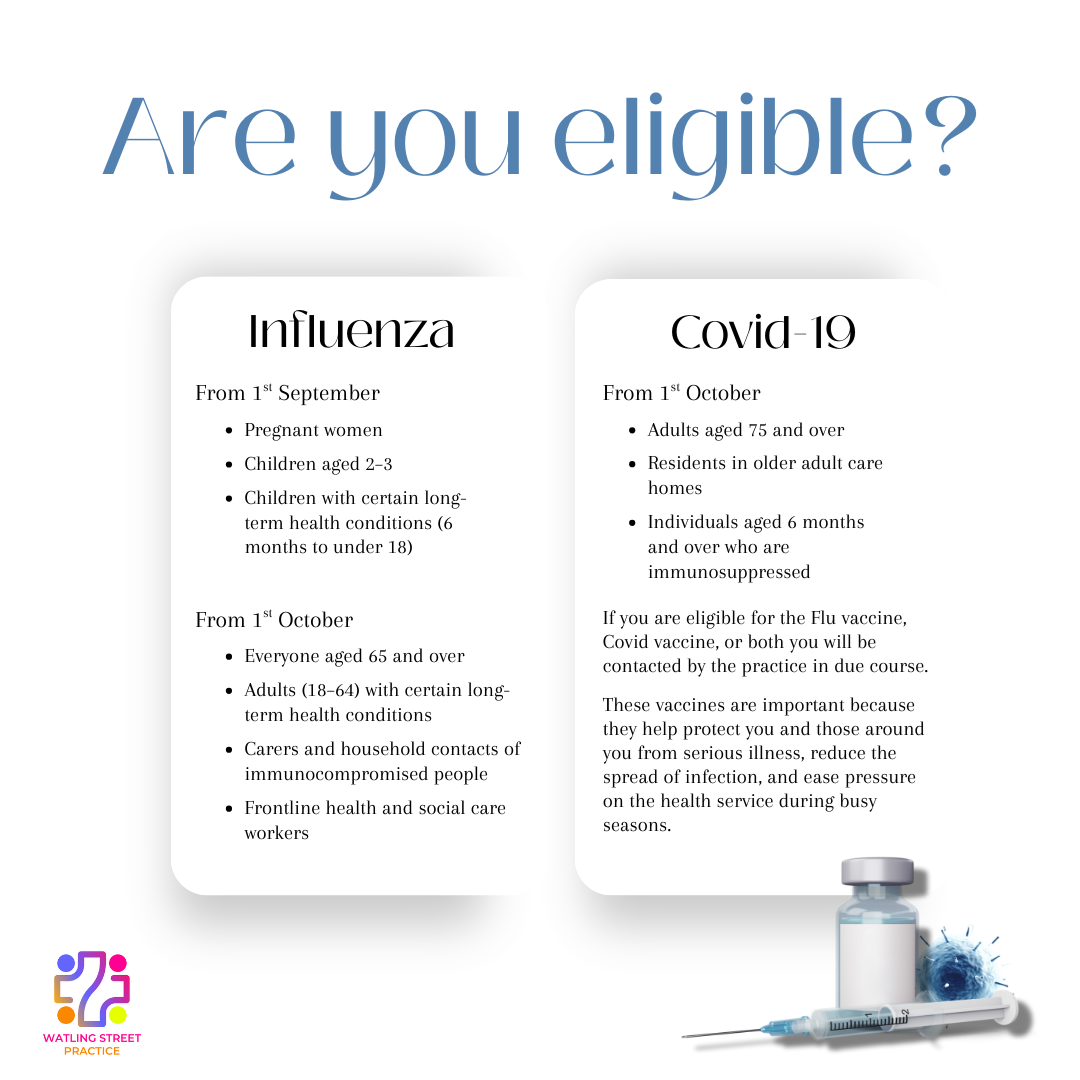
RSV Vaccination
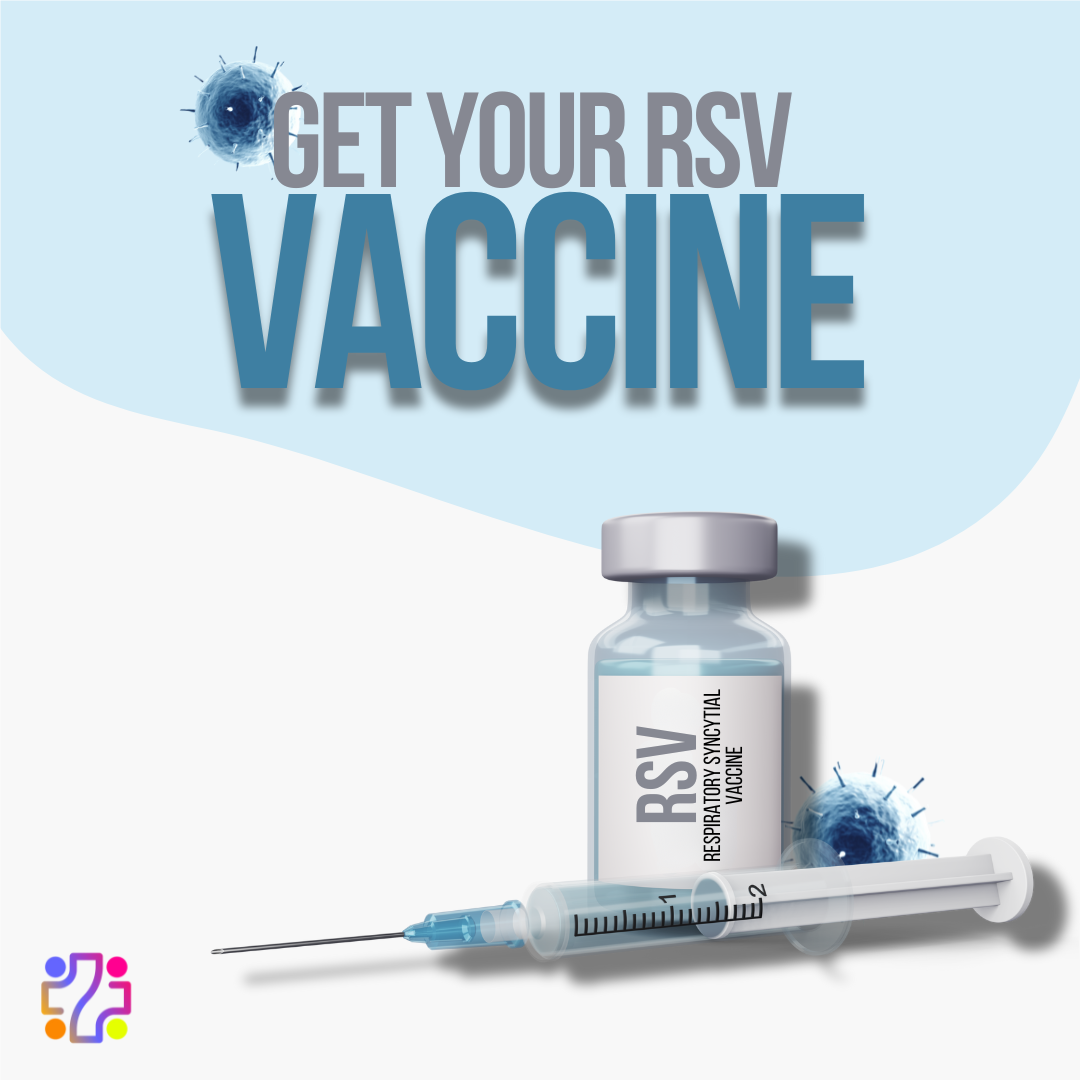
Shingles Vaccination
The shingles vaccine helps protect against shingles. It's recommended for all adults turning 65, those aged 70 to 79 and those aged 50 and over with a severely weakened immune system.
What the shingles vaccine is for
Shingles is a common condition that causes a painful rash. It can sometimes lead to serious problems such as long-lasting pain, hearing loss or blindness.
You're more likely to get shingles, and it's more likely to cause serious problems, as you get older or if you have a severely weakened immune system.
The shingles vaccine helps:
- reduce your chances of getting shingles
- reduce your chances of getting serious problems if you do get shingles
Who should have the shingles vaccine
The shingles vaccine is recommended for some older adults and people with a severely weakened immune system.
- People who turn 65 on or after 1 September 2023
- People aged 70 to 79
- People aged 50 and over with a severely weakened immune system
How to get the shingles vaccine
Contact us if you:
- you think you're eligible for the shingles vaccine, but you've not been contacted
- you did not have the vaccine when you were contacted and you're still under 80 (only people with a severely weakened immune system can get the vaccine after 80 years of age)
- you've had the shingles vaccine before but you now have a severely weakened immune system – depending on the type of shingles vaccine you had, you may need another shingles vaccine
- you're due to have your vaccine and you're feeling unwell – you may need to wait until you're feeling better before having the vaccine
- you need to change your vaccination appointment
To find out more about the Shingles vaccine, please visit: NHS- Shingles Vaccine
Pneumococcal Vaccination
The pneumococcal vaccine helps protect against serious illnesses like pneumonia and meningitis. It's recommended for people at higher risk of these illnesses, such as babies and adults aged 65 and over.
What the pneumococcal vaccine is for
The pneumococcal vaccine helps protect against some types of bacterial infections that can cause serious illnesses like:
- meningitis (an infection in the brain and spinal cord)
- sepsis (a life-threatening reaction to an infection)
- pneumonia (an infection in the lungs)
It can also help protect against other illnesses such as sinusitis and ear infections.
Who should have the pneumococcal vaccine
The pneumococcal vaccine is recommended for babies, older people, and people at higher risk of getting seriously ill from pneumococcal infections.
- Babies- 1st dose at 12 weeks and a booster dose at 1 year
- People aged 65 and over- 1 dose when you're 65
- Children and adults at higher risk of getting seriously ill- At least 1 dose (some people may need extra doses or regular doses)
How to get the pneumococcal vaccine
Contact us if you:
- you have not been contacted to get the pneumococcal vaccine, but you think you or your child are eligible
- you or your child have missed your pneumococcal vaccinations, or you're not sure if you've been vaccinated
- you or your child are unwell – you may need to wait until you're feeling better before having the vaccine
- you need to change a vaccination appointment
To find out more about the Pneumococcal vaccine, please visit:NHS- Pneumococcal Vaccine
Your child's vaccine schedule
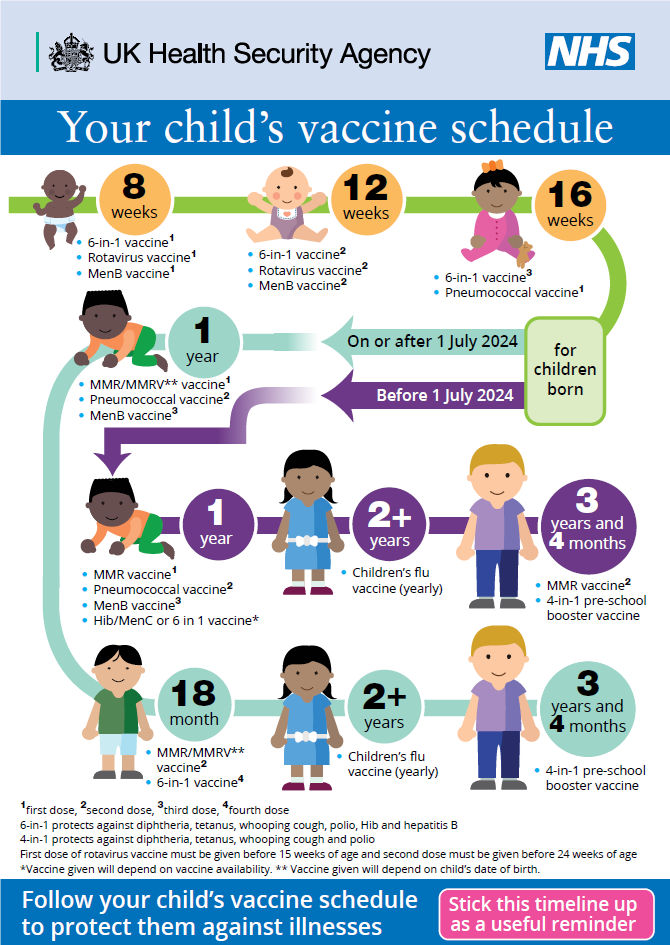
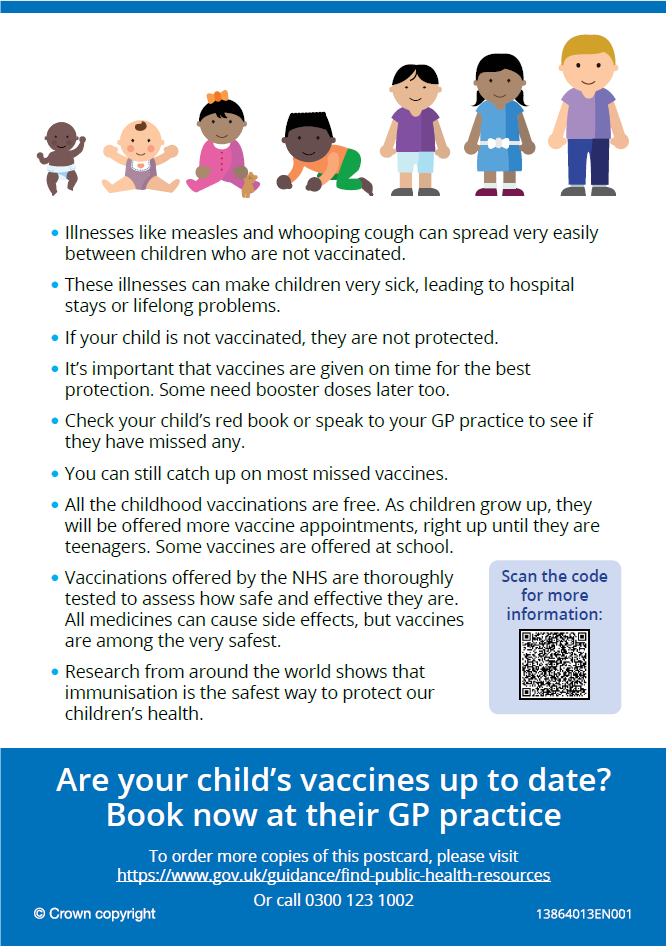
Page created: 02 September 2025